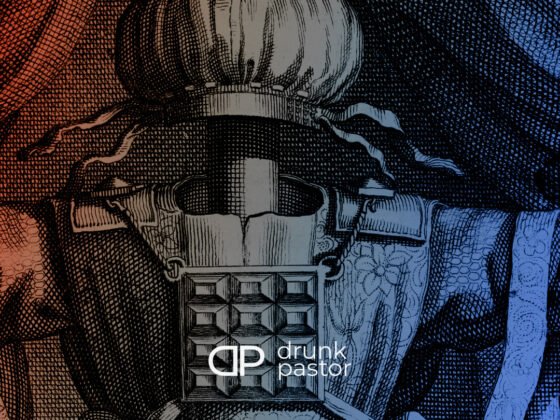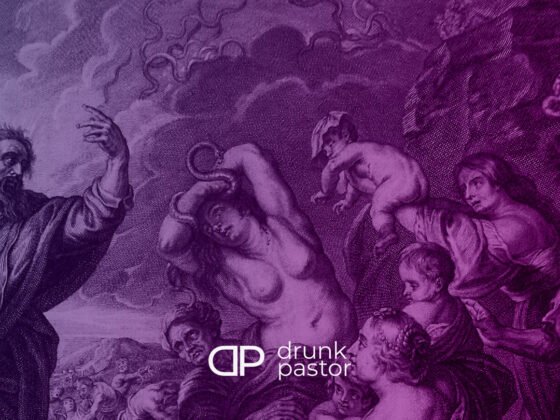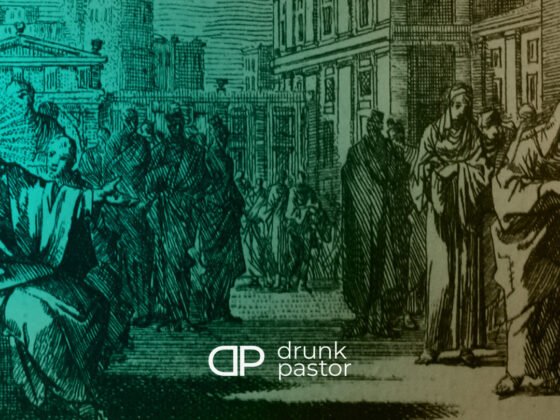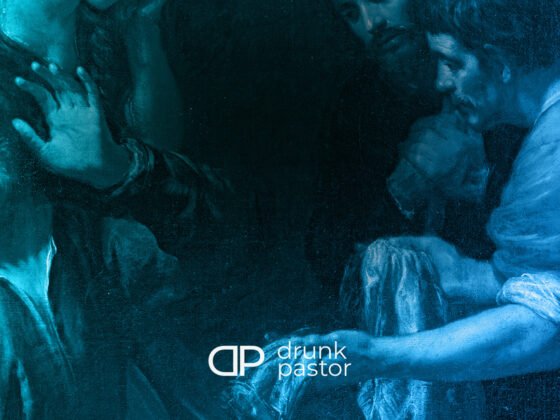Ok. Stick with me on this. I’ll set it up, talk it through, and then chew on it. Sleep on it. Then let me know what you think. It’s there but I haven’t fleshed it all out yet.
What if We’ve Been Preaching “It is Finished” Wrong?
“After Jesus said this, knowing that everything was now completed, he said (fulfilling the Scripture), ‘I thirst.’ A jar full of sour wine stood there, so they put a sponge full of the sour wine on a hyssop branch and held it to his mouth. When Jesus had received the sour wine, he said, ‘It is finished,’ and he bowed his head and gave up his spirit.” John 19:28-30
Jesus’s last statement, “It is finished,” is a popular point for sermons. It’s almost guaranteed to show up on Easter weekend. We usually teach it to mean that the payment for sin is now complete and we can be forgiven. It’s often presented like a business transaction, an exchange for the forgiveness of sinners in exchange for Jesus’ innocence.
But it’s only a few words and it’s in the middle of John’s crucifixion narrative. Is that really what Jesus meant – one last random statement about Jesus’ sacrifice paying for our sins? John’s gospel is intricate, beautiful, and beautifully simple. It weaves subtleties and literary threads throughout. Why would John drop a statement like “It is telos” as Jesus’ last words if they don’t connect to something for John?
John uses “finished” twice (telos in Greek) in these three verses. That made me wonder. Then I reread “A jar full of sour wine” and sparks went off. I immediately went to John 2. While we don’t have time for that part, it got me thinking about this:
Jesus’ Missed Hour & Signs
In the Gospel of John, there’s this early literary device John uses to set a movement in his narrative. It first appears in John 2 after Mary asks her son to turn water jars into wine. Jesus replied that his hour had not yet come (but still did it). Jesus’ hour not coming shows up again in places like John 7:30 and 8:20. Like John’s “signs,” which also start at the same event in John, John introduces that he’ll be doing this and then just assumes you keep up.

His hour keeps not coming until something happens that made Jesus say, “The hour has come for the Son of Man to be glorified” in John 12:23. Jesus had been emphatic that his hour had come yet. Now, the thing that changed was even the Greeks, not just Jews or Samaritans, wanted to meet Jesus. “Now among those who went up to worship at the feast were some Greeks. So these came to Philip, who was from Bethsaida in Galilee, and asked him, “Sir, we wish to see Jesus.’ (John 20:20).
In the same breath, after Philip and Andrew told Jesus about the Greeks, Jesus finishes his response with, “Now is my soul troubled. And what shall I say? ‘Father, save me from this hour’? But for this purpose I have come to this hour” (John 20:27). After some more stuff, Jesus says in verse 32, “And I, when I am lifted up from the earth, will draw all people to myself.” Jesus keeps connected his hour has something to do with attracting people and his death. And when Jesus said, “When I am lifted up,” He is making a direct call back to John 3 with Nicodemus: Just as Moses lifted up the serpent in the wilderness, so the Son of Man must be lifted.
Then the first verse in John 13 says, “Now before the Feast of the Passover, when Jesus knew that his hour had come to depart out of this world to the Father, having loved his own who were in the world, he loved them to the end.” From here until He is arrested, Jesus will emphasize a few things and one of them is the only “new” commandment He gave – to love each other as he loved us. Jesus had accomplished his mission. It was telos. He loved his people well and gave himself for them.
One last thing before moving on: John plays with Creation from Genesis all over his gospel. When John scribbled down Jesus’ declaration of completed work, John was most definitely alluding to God’s completed work on the 6th day. After which, God rested. Jesus would be killed on the sixth day of the week, “rest” on the sabbath, and be raised to “new life” on the first day of the week. It’s all over but we have to keep moving.
What’s My Telos?
Tracking? Here is a thought: Jesus’ “It is Finished” statement is more about what is already in the Gospel of John than it is what our 2000 years of theologizing over 3 words. Jesus didn’t mean something about a completed transaction for our guilt in John 19:30. His hour, signs, his glorification through his love for those who hated him, and the rest of the Gospel of John (and scripture): “It is finished” has been always connected to what we just covered and not what we’ve been preaching it as.
What he meant was the hour when he would be lifted up, “glorified,” when all nations and peoples would be attracted to him, his message, and what he was doing, had come. It was His sacrificial and loving death at the hands of God’s people, without hate and while asking God to forgive his abusers. It was “For God So Loved The World That He Gave” to the world and didn’t condemn it.
“The work is done and you just have to accept Jesus.”
vs
“Jesus accomplished his Creation. Now it’s our turn to get going.“
And if that’s the message, it makes me wonder about my work, what it is I’m trying to telos with all my life and endeavors. It makes me also wonder about the Church. What it is the American Evangelical Church is trying to telos through its lifting of itself up, condemnation of the world, playing the victim, and absent evidence of the agape love Jesus asked from us in John 13. When Jesus was willing to take his Easter church clothes off, wash the feet of the people who would abandon and betray him, pray for the forgiveness of those nailed him to a cross to die, and still he loved: Is the American Church that?












